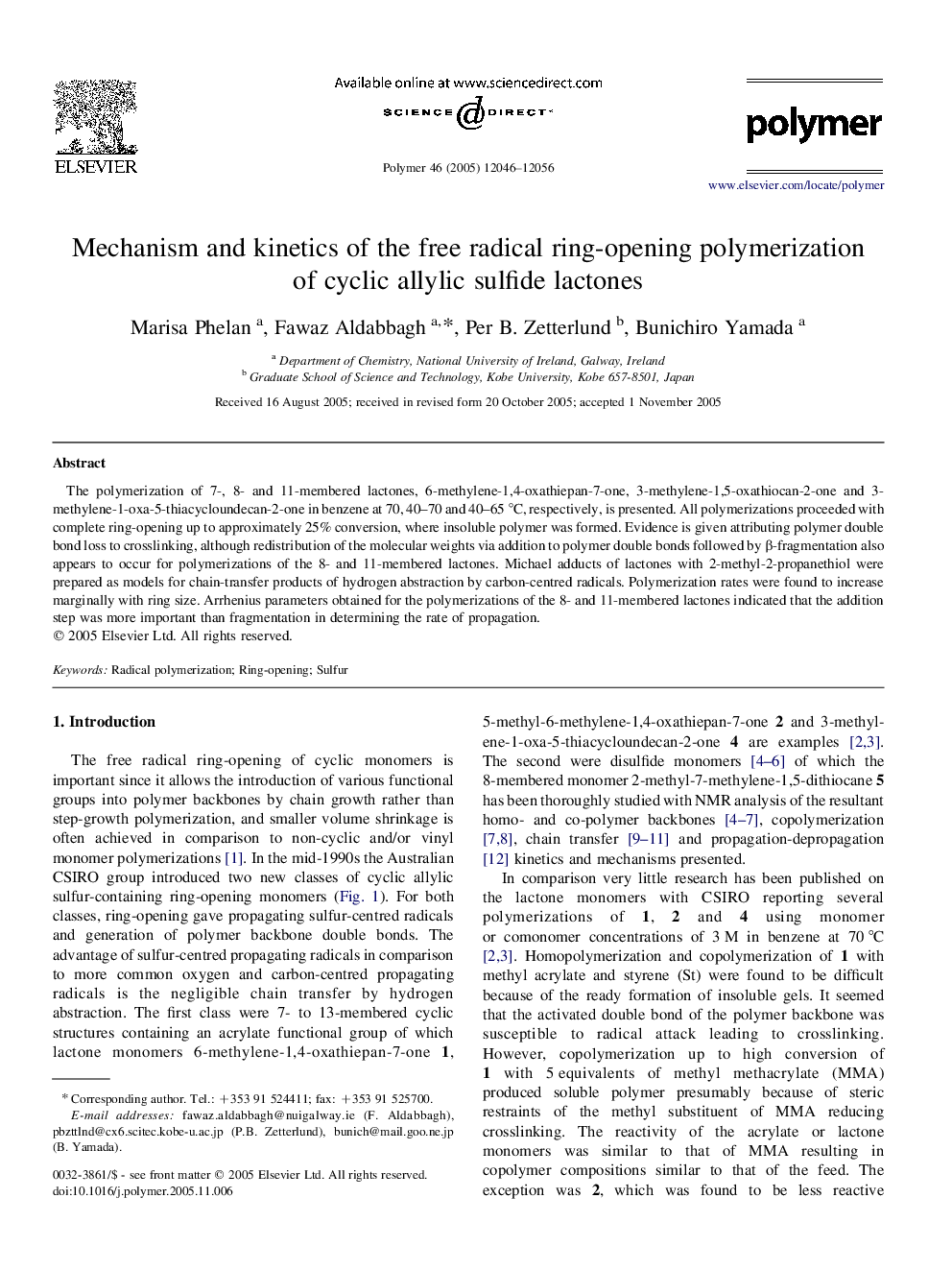| Article ID | Journal | Published Year | Pages | File Type |
|---|---|---|---|---|
| 5189602 | Polymer | 2005 | 11 Pages |
Abstract
The polymerization of 7-, 8- and 11-membered lactones, 6-methylene-1,4-oxathiepan-7-one, 3-methylene-1,5-oxathiocan-2-one and 3-methylene-1-oxa-5-thiacycloundecan-2-one in benzene at 70, 40-70 and 40-65 °C, respectively, is presented. All polymerizations proceeded with complete ring-opening up to approximately 25% conversion, where insoluble polymer was formed. Evidence is given attributing polymer double bond loss to crosslinking, although redistribution of the molecular weights via addition to polymer double bonds followed by β-fragmentation also appears to occur for polymerizations of the 8- and 11-membered lactones. Michael adducts of lactones with 2-methyl-2-propanethiol were prepared as models for chain-transfer products of hydrogen abstraction by carbon-centred radicals. Polymerization rates were found to increase marginally with ring size. Arrhenius parameters obtained for the polymerizations of the 8- and 11-membered lactones indicated that the addition step was more important than fragmentation in determining the rate of propagation.
Related Topics
Physical Sciences and Engineering
Chemistry
Organic Chemistry
Authors
Marisa Phelan, Fawaz Aldabbagh, Per B. Zetterlund, Bunichiro Yamada,
